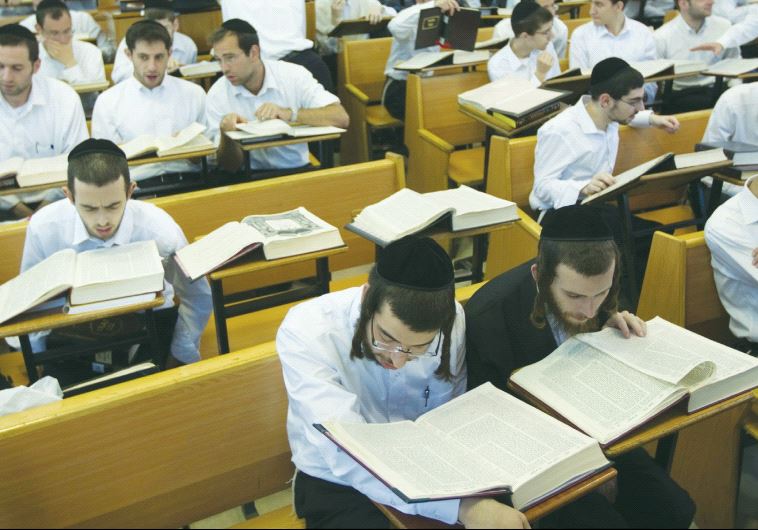Plan approved for ultra-Orthodox integration into academia
Education Minister Naftali Bennett said that integration of ultra-Orthodox students into Israeli academia contributes to society as a whole.
 ULTRA-ORTHODOX STUDENTS study at Jerusalem’s Mir Yeshiva.Updated:
ULTRA-ORTHODOX STUDENTS study at Jerusalem’s Mir Yeshiva.Updated: